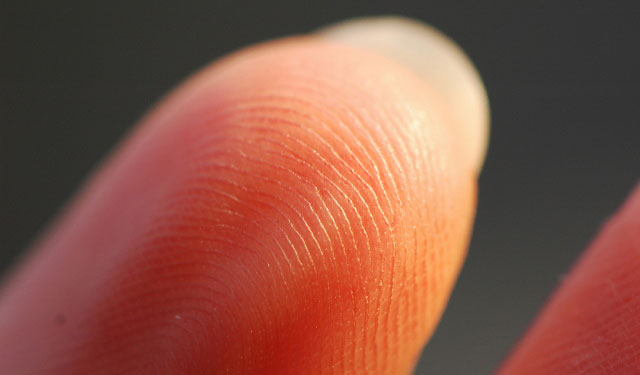
Basic education minister Angie Motshekga faces strong opposition if she installs fingerprint machines in schools, if the response from outraged teachers is anything to go by.
Her critics include the two largest teacher unions, which this week questioned what impact such monitoring could possibly have on the quality of teaching.
Speaking at a press briefing at parliament on 26 February, Motshekga revealed her plan to reduce teacher absenteeism by spending about R480m on machines at all 25 000 public schools. About 10% of teachers are absent on any given day, she said — more than double the average in any other country in the Southern African Development Community. This would not be a “policing system” but a management tool to monitor teachers’ attendance.
In January, such a machine was installed at Rehotse Secondary School in the Free State town of Senekal — at the principal’s own initiative. Teachers there are furious.
“We’re short of textbooks, the school is dilapidated, the toilets are a mess and we don’t have a library,” one teacher told the Mail & Guardian. “Our core job is teaching. We need resources to teach, not useless clocking machines. The machine doesn’t bring any difference. It’s a waste of money.” The teacher added that the device would not necessarily stop teachers from leaving school premises during school hours. “This means the machine, which cost R8 000 of school funds, has been bought at the expense of the learners.”
The school’s principal, Malesetsane Selikane, declined to comment.
The National and Professional Teachers’ Organisation of South Africa was scathing about Motshekga’s plan, saying the fingerprint machines would perpetuate the “deprofessionalisation” of teachers.
“You can’t call people professionals and then treat them as though they work in a factory,” said Basil Manuel, president of the union. “You are lying to yourself [if you do that]. Should we not be talking about how we could change attitudes so that we can reprofessionalise the system?”
How a biometric system could monitor all 25 000 public schools in the country baffled Manuel, who pointed out that between 30% and 40% of schools do not have regular, or in some cases any, electricity.
“And how do you put a gadget like that in a mud school? Do you think it will last a night? We’re ignoring the reality of South Africa,” he said. “This is not a sustainable solution. We’ve got to change attitudes. You can’t legislate behaviour or change it with machinery or gadgets.”
The South African Democratic Teachers’ Union will oppose the system because it insults teachers, secretary general Mugwena Maluleke said. “Instead of improving teacher competence, the minister comes up with a mechanical system that demeans teachers.”
Others expressed scepticism that fingerprint machines would have any effect on education quality. Ingrid Sapire, a maths lecturer at the University of the Witwatersrand, said: “It is questionable how a biometric monitoring system would improve teaching: it can only monitor attendance. To improve teaching we need teachers who are at school and better equipped to teach.”
Sapire was one of 16 researchers whose 2011 study found that, although teacher absenteeism was a problem, even teachers who are present at school do not necessarily teach all their scheduled lessons, “for a host of other reasons”.
“Improvement in teaching will be made possible through the improvement of teacher readiness to teach a subject,” Sapire said. “What we need is effective teacher professional development in content areas where knowledge is lacking.”
Human Sciences Research Council education specialist Cas Prinsloo said a “formal system of this nature” may “dramatically improve” teacher attendance but “attendance is not a guarantee for curriculum coverage and good teaching and learning”.
Thandiwe Zwane, a grade 11 pupil from Soweto, said that a system that monitors whether teachers are at school is pointless. “It should check what they do once they are at school. Teachers do not teach all the time. Others will come to class but not teach for the entire hour. We lose out.”
The basic education department did not respond to the M&G’s questions. — (c) 2013 Mail & Guardian
- Visit the Mail & Guardian Online, the smart news source




